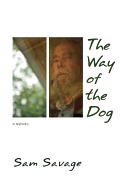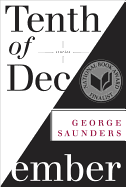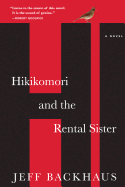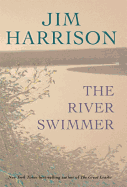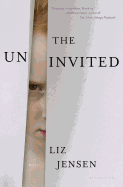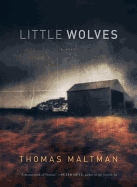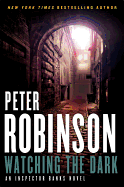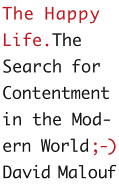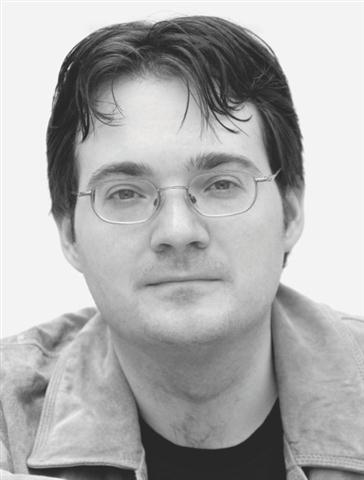 Brandon Sanderson remembers picking up a paperback of The Eye of the World, the first volume in Robert Jordan's epic fantasy series The Wheel of Time, in late 1990, when he was about 15 years old. "As a young new fantasy fan, who had just discovered the genre in the last year or so," he said, he was drawn to the book because of its size--nearly 700 pages. "You can't judge quality based on length, but I'd hit upon the fact that if I liked a book that was long, there was much more of it to love, so I looked for the big books hoping that I'd find ones that I loved and be able to dig deep into the world."
Brandon Sanderson remembers picking up a paperback of The Eye of the World, the first volume in Robert Jordan's epic fantasy series The Wheel of Time, in late 1990, when he was about 15 years old. "As a young new fantasy fan, who had just discovered the genre in the last year or so," he said, he was drawn to the book because of its size--nearly 700 pages. "You can't judge quality based on length, but I'd hit upon the fact that if I liked a book that was long, there was much more of it to love, so I looked for the big books hoping that I'd find ones that I loved and be able to dig deep into the world."
Jump ahead to 2007: Robert Jordan had died in the middle of writing what he'd intended as the final volume in the series, and Sanderson--now in his early 30s--was beginning to emerge as an epic fantasist in his own right, sharing a publisher with Jordan at Tor Books. After reading one of Sanderson's novels, Jordan's wife and editor, Harriet McDougal, asked Sanderson to help bring the Wheel to its conclusion. "It felt like a huge responsibility, one that I had never considered myself doing," he said of that request. "It was overwhelming, astounding, amazing, wonderful and horrifying all at the same time." It also turned out to be a much bigger project than he'd anticipated, as that last book expanded into a trilogy, starting with The Gathering Storm (2009) through Towers of Midnight (2010) and, finally, A Memory of Light (January 2013).
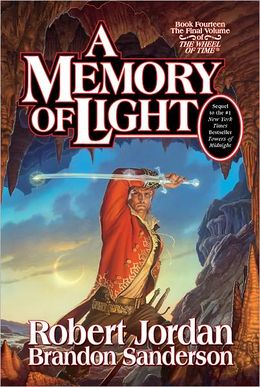 To prepare himself, Sanderson reread all 11 of Jordan's novels and began writing some "test scenes," estimating that it took him about six months before he felt that he'd found the right approach. "I never tried to imitate his voice," he said, "but every writer learns, like every painter, how to approach different styles." He described the results as adapting his own voice to the fictional world Jordan had created, with an ultimate focus on the characters. "I'm not spending much time worrying whether Robert Jordan would have used this word or that word," he explains. "I spend my time worrying: Would Rand say this? Would Egwene do that? Would Perrin think this?"
To prepare himself, Sanderson reread all 11 of Jordan's novels and began writing some "test scenes," estimating that it took him about six months before he felt that he'd found the right approach. "I never tried to imitate his voice," he said, "but every writer learns, like every painter, how to approach different styles." He described the results as adapting his own voice to the fictional world Jordan had created, with an ultimate focus on the characters. "I'm not spending much time worrying whether Robert Jordan would have used this word or that word," he explains. "I spend my time worrying: Would Rand say this? Would Egwene do that? Would Perrin think this?"
This wasn't, he emphasizes, just a matter of tying up some loose ends. "People ask about this a lot: Did it follow the outline? There wasn't an outline," he observed. "Robert Jordan didn't write from an outline. He wrote by instinct." There were several completed scenes--which Sanderson incorporated into his manuscripts whenever they were available--and notes from conversations between Jordan and his assistants, but Sanderson emphasized that these provided only indications of how Jordan intended to complete the Wheel, not firm decisions. "If there had been a strict outline, exact details on what to do, they wouldn't have needed me," he said. "They could have hired a ghostwriter to write it." Now, after five years of what he describes as "a very deep collaboration" with Jordan and his epic, "sometimes I can't even remember what's in the books, what's in the notes, and what I came up with."
As that collaboration was unfolding, Sanderson's own literary output continued to grow. He pointed out, however, that some of the books that appeared between 2007 and 2013 were already completed and in the pipeline, "So it looks like I was working on a lot of projects at once, when really I wasn't doing as much as it seems." The only book he devoted much time to apart from the final Wheel trilogy, he said, was 2010's The Way of Kings, a 1,000-page novel that's intended as the first volume of a 10-book series. Then again, "I take vacations by writing books I'm not supposed to be writing," he added. "I'll flee from duties for a while and work on a short story or something," like the novella The Emperor's Soul (published by Tachyon in late 2012).
As for a proper vacation, Sanderson said, "The book isn't really done until it's out and the tour is over." After that, though, he does have plans for a family cruise... and then, no doubt, it's right back into his own epic worlds. The sequel to The Way of Kings, after all, is tentatively scheduled for later this year. --Ron Hogan, founder of Beatrice.com
Brandon Sanderson: Following Jordan
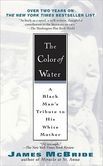




 Brandon Sanderson
Brandon Sanderson To prepare himself, Sanderson reread all 11 of Jordan's novels and began writing some "test scenes," estimating that it took him about six months before he felt that he'd found the right approach. "I never tried to imitate his voice," he said, "but every writer learns, like every painter, how to approach different styles." He described the results as adapting his own voice to the fictional world Jordan had created, with an ultimate focus on the characters. "I'm not spending much time worrying whether Robert Jordan would have used this word or that word," he explains. "I spend my time worrying: Would Rand say this? Would Egwene do that? Would Perrin think this?"
To prepare himself, Sanderson reread all 11 of Jordan's novels and began writing some "test scenes," estimating that it took him about six months before he felt that he'd found the right approach. "I never tried to imitate his voice," he said, "but every writer learns, like every painter, how to approach different styles." He described the results as adapting his own voice to the fictional world Jordan had created, with an ultimate focus on the characters. "I'm not spending much time worrying whether Robert Jordan would have used this word or that word," he explains. "I spend my time worrying: Would Rand say this? Would Egwene do that? Would Perrin think this?"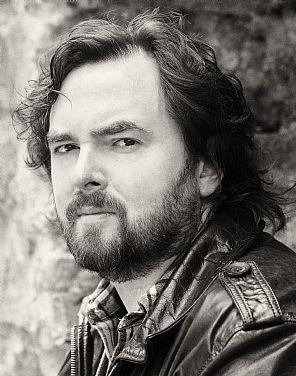 Stuart Neville
Stuart Neville